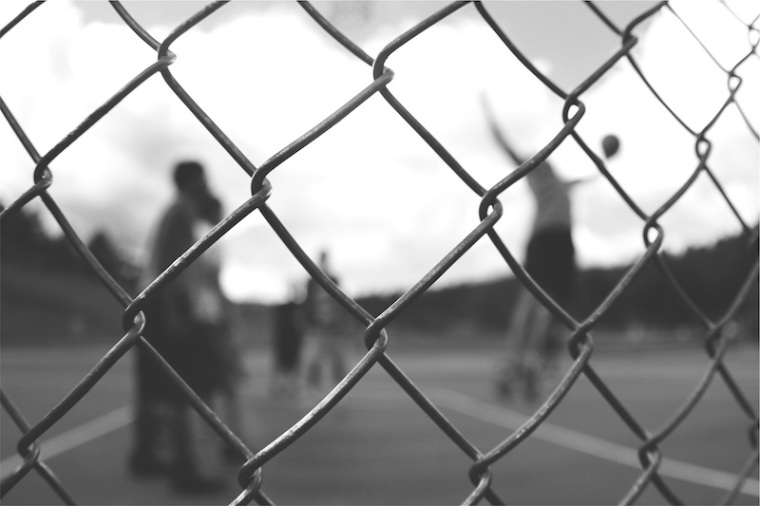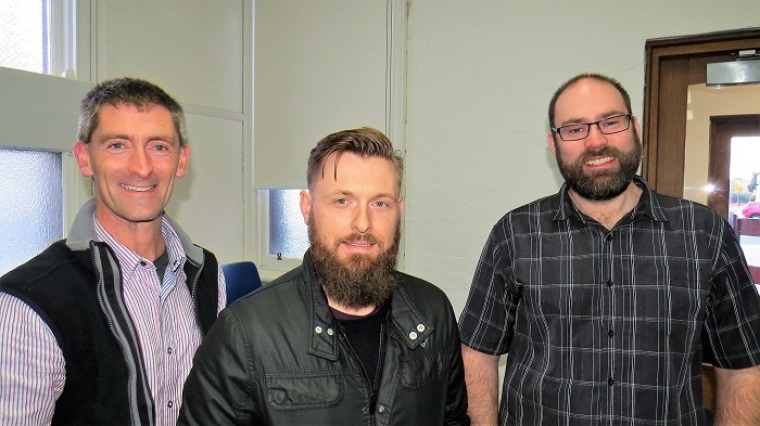

Every week there are young people who end up in youth prison, or 'youth justice residences'. They range in age between 13 and 16, and the crimes they have committed are often serious and sometimes violent.
Two weekends ago, one of the young people I knew from one of these residences died in a high speed car crash at the age of 16, and it's given me cause to think.
Too often when I visited the youth prison the crimes that had been committed were merely seen as games. Each young person was allowed to glorify their story to one another, and the surroundings of what led them to being locked away bandied around like a hobby. Being chased by the police, breaking into people's homes, even having contraband smuggled into the residence were all seen as pursuits, a game that you sometimes won but this time had lost.
The interesting thing for me is that they talked about their escapades with the same level of enthusiasm and excitement as when my friends and I reflected on a game of Spotlight or Capture the Flag as teenagers. In a way, we were all playing the same game—running away from a pre-determined authority, trying to compete within a defined set of rules, and laughing about the whole experience later.
But for some of these teenagers, youth prison isn't a turning point in their life, where they make a bunch of new choices and changes. A lot of them see it as a holding pen before being released to start the destructive game of life all over again.
It's just that some of these teenagers are playing with their lives.
Life's a game
Before going to the youth justice residence, I thought that a young person would be feeling down and out, gutted that their life had reached the bottom of the barrel. I thought that they would be paired up with mentors and counsellors to reflect on how they shouldn't make the same mistake again.
While this might sometimes be the case, what really matters is what is being defined by their peers.
It just happens that some teenagers don't have positive people in their lives—they actually have negative influencers, and these people are often their friends. If someone ends up in youth prison and all their peers are boasting about their latest pursuits and giving tips for how to do crime better, then this becomes their path to acceptance and approval.
As Ashanti Branch said, too often we have teenagers who are "learning by doing. People at school and other young men they tell you 'This is what you've got to do, this is how you do it'...so we end up with a village of youth raising the youth".
And when you think about it, this makes total sense. Everything that we wear and say and do allows us to fit in with the people around us. Life's social norms have been set in front of us, and we know what is appropriate in different contexts and settings. We are all masters at being chameleons in order to belong.
All of a sudden, authority figures like teachers and police can suddenly be on an opposing side, and breaking into people's cars and homes can become a natural pursuit.
A city on a hill
It saddens me to think that there are churches and youth groups all around our cities, filled with incredible people yearning to make a difference on earth; and yet there are large groups of young people who would greatly benefit from such wonderful people, but who are not going to cross paths, purely by way of circumstance.
Are we not, after all, a city on a hill that cannot be hidden?
As I mentioned in a previous article, encouragement is a currency that everyone desires but so often lacks. Wouldn't it be great if there was the chance for every young person to be enveloped by a community of positive and life-changing mentors, no matter what was going on at home? Wouldn't it be great for young people to receive acceptance and affirmation for doing positive and constructive things, and were then encouraged to spread this warmth on to others?
I'm not saying that churches are doing a bad job or that our communities are lacking in positive people doing incredible things. But I also long for a day where we don't have young people sent to prison, nor pursue negative consequences as a game to survive. We have the right people, plenty of buildings and resources, even the right intentions to make a difference in people's lives.

As Shane Claiborne said, after witnessing the mafia gift bikes, turkeys and money to homeless families in need:
"I guess God can use the mafia, but I would like Him to use the Church".
Matt Browning is a storyteller and lover of ideas. He recently saw a story about summer camps for adults, and wonders if we all just want to be kids forever after all.
Matt Browning's previous articles may be viewed at www.pressserviceinternational.org/matt-browning.html